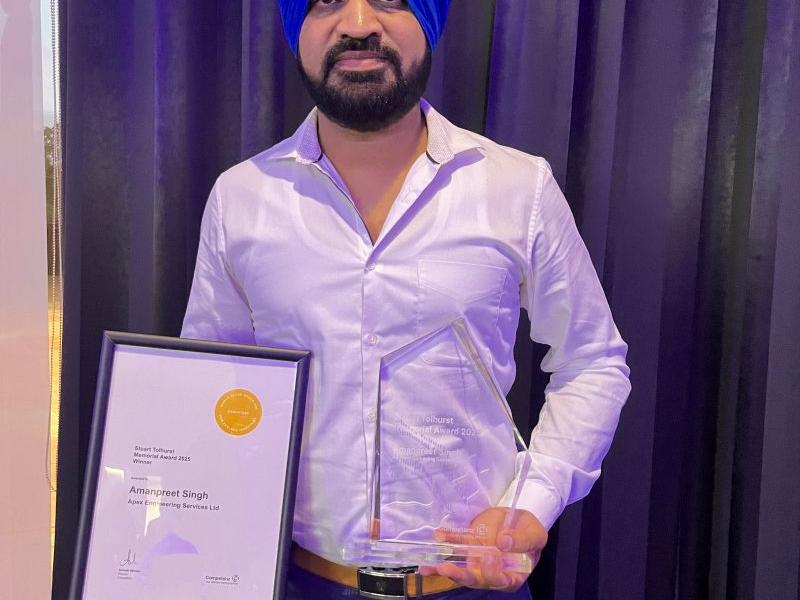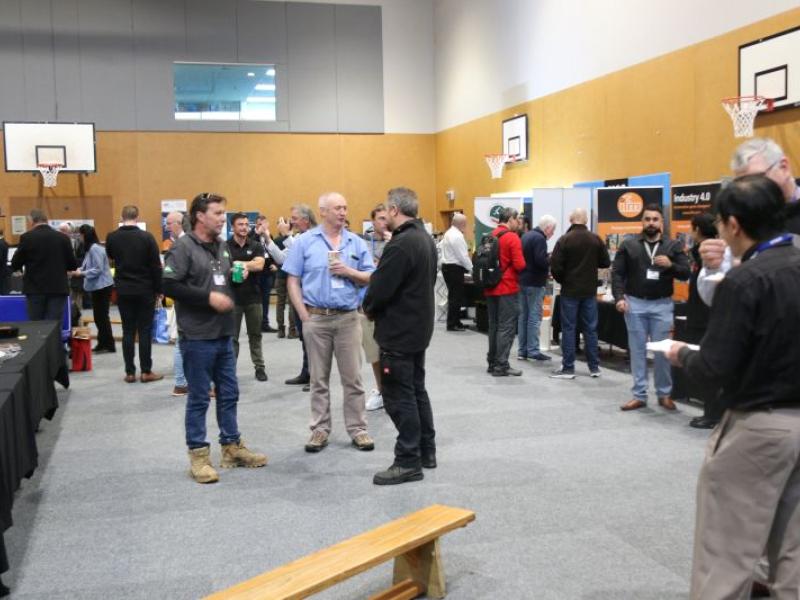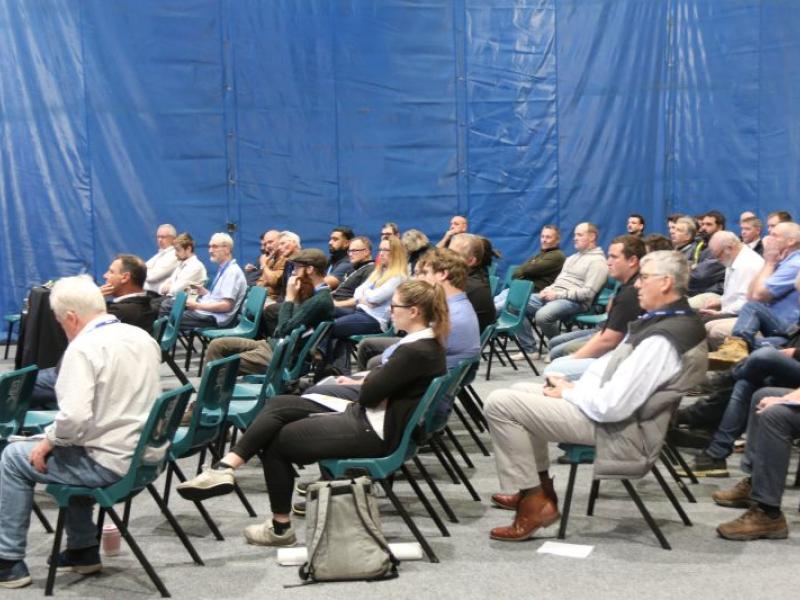A sawmill near Blenheim has found that a new programme on operator based maintenance has changed the workplace culture. Chris Lambert, manager of the sawmill said “We’ve now got a more organised workplace with a daily cleaning routine in place and pre-start checks being carried out by operators. Equally importantly though, the operators have greater knowledge of their equipment and we now have the start of a new culture with operators taking greater pride and ownership of their equipment. We are seeing few stoppages which has the added benefit of uninterrupted workflow for the operators.”
The Kaituna Mill site is situated 20 kilometres west of Blenheim and part of Nelson Forests, a well-established, high quality, forest estate located in the Nelson and Marlborough regions of New Zealand's South Island. Kaituna Mill has an on-going commitment to training and won the Forestry ITO’s (FITEC) Outstanding Business Performance through People Development award in 2009 after taking the runners up slot in 2008. This year two apprentices from Kaituna Mill were in the finals of the FITEC apprenticeship awards. Izaac Filipov for the Sawmill Modern Apprentice of the Year and Jamie Howieson for the Saw Doctor Apprentice of the Year.
When asked why the leadership team decided to go down the route of operator based maintenance, Chris explained “The driving force was the upgrade to the sorting and stacking processes. Going from what was predominately a manual operation to one that is now fully automated meant we could increase production and of course to sustain that, we need greater reliability from the upstream processes. TPM and operator based maintenance has the benefits of giving the operators greater ownership of their equipment and frees up maintenance from some of the daily tasks to implement more predictive and proactive techniques. We saw it as a way to get operations and maintenance working closely together to increase equipment reliability”
While there was a will and the knowledge available to start the training the leadership team recognised that they did not have the structure in place themselves. The company was aware that training provider Skills4Work had a well-established maintenance training programme and contacted Phil Hurford, Programme Manager for Maintenance Excellence.
“The Cooperative Production Reliability programme is an onsite programme based on TPM and autonomous maintenance that has been developed to meet the needs of NZ industry. In our experience operators are more than capable of carrying out basic maintenance tasks but organisations need support to build the processes and structure to enable that to happen, and that’s where we come in.”
Before the programme got underway Phil took a trip down to the site to take a look around to understand the challenges the organisation was dealing with. He found that there was an on-going commitment to training at the site, but like many organisations, the general rule in the workplace was We’re operations and we run it and you’re maintenance and you fix it. Hurford said that “a lot of what we do is to provide the way for people to see things differently, to question whether the current system is working and provide a framework for them to develop the new ways of working”.
The focus for the training is that for any change to be sustained there has to be changes to the work environment as this is what will change attitudes and behaviours which is what will ultimately lead to a change in culture. While that environmental change can be something as simple as the layout of equipment and workflow, more often it involves more complex issues such as the priorities of management and staff or the way in which information is communicated. Both Kaituna Mill and Skills4Work were looking for long lasting change and not something superficial, but did they achieve that?
Karen Way was one of the Mill Team Leaders who took part. She said “The first thing we looked at was workplace organisation. Although we had some training for 5S a couple of years ago, it didn’t continue as part of the daily routine. We looked at the workplace, took a load of photos and did some root cause analysis to find out why certain things were or weren’t happening. From that, we were able to make some changes so that we could become more organised and that was really the starting point for us.” She went on “The next phase was to gain a better understanding of the equipment we operate every day. We did some “Know why” training with Phil and our maintenance crew to understand why it is important to keep equipment clean and maintained. For instance, now that we know the basics of how a motor works we know why it is crucial to keep the mesh on the cooling fan clean.”
There were times when barriers had to be dealt with. “When the programme got underway there was initially some concern from the operators that they would simply be carrying out work currently done by maintenance and this would simply be loaded onto their already full workload” Phil explained. “However, as the focus of the programme became clear the operators embraced the concept of being the asset owners. Operator based maintenance is a three-way partnership. The operators are the central figure and become owners of the asset but they are supported by maintenance and equally importantly, supported by management. It was this support that overcame the reservations of the operators. Maintenance was there to guide the development of the new procedures and management supported changes to work patterns and financed some changes to the physical work environment in the control cabins.”
For the final phase of the programme, the operators had to come up with their own cleaning and pre-start routines. This required that they worked closely with maintenance to develop written basic care tasks. During this process, every person in the team had input and understood not only what had to be done but, just as importantly, why it had to be done.
Last month Phil Hurford was invited back to Kaituna Mill to complete a review of the programme six months after the training finished. “When I went back it was like walking into a different work place. Where I was originally seeing a build up of sawdust it is now much cleaner because every day the operators complete the cleaning routines they developed. This allows them to check the equipment and report any faults to maintenance. The workplace is much more organised with all tools and equipment now kept in a designated place close to where it is used.” He went on “the biggest improvement that I could see though was the change in attitudes and behaviours. This has come about because management has continued to support the on-going CPR work of the operators. Management made the investment in the physical working environment by revamping the control cabins and supported the changes being developed by the operators who had amongst other things, come up with their own roster to ensure the cleaning and pre-start checks were carried out. This is the start of a change in the culture.”
The programme has now taken on a life of its own. The operators decided that to make the programme more successful they would take it beyond the initial pilot area and extend it to include the next equipment centre in the process, the re-saw.
The change in culture can be seen beyond the confines of the programme. Recently there was an issue brought about by the unusual amount of rain causing the recycled waste that is used to power the kilns to become wet. The operators were given encouragement and the freedom to solve the problem. The General Manager, Matt Bond said “Just after the meeting to discuss this I was off site for several days and when I returned the problem was sorted. The operators questioned the priorities given to which products are stored under cover and after some research they found that those priorities were correct several years ago but not today. Consequently by the time I got back to site, the store had been re-organised and the problem solved. Through the TPM and other training, staff has been empowered to solve this type of problem and that’s exactly what they now do. Another example of this would be when earlier this week Izaac, one of the Head Rig operators, suggested improvements to the waste is removed from the edger. He was immediately given a budget and a time frame to work to and is now consulting with the engineers to ensure the changes are made.”
This is a perfect example of what can be achieved with a cooperative approach to production reliability. Izaac the operator, who is the eyes and ears of the plant, identified the problem, discussed it with management and is now working with maintenance to make the improvements.
With the support of management and full involvement of production and maintenance it is possible to improve production reliability and foster a greater sense of asset ownership. Karen, the Team Leader who has been helping to drive the programme summed it up when she said “These young operators will eventually go on to run the saw mill and we’ve given them the tools to do that.”
Phil Hurford is the Maintenance Excellence Programme Manager for Skills4Work. p.hurford@skills4work.org.nz





